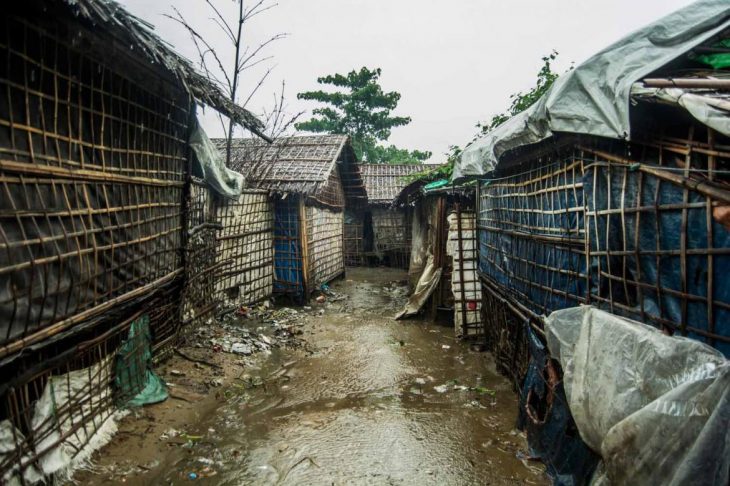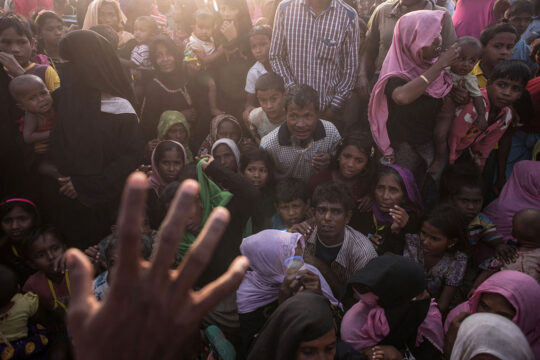YANGON — The United Nations has reiterated a call for access to northern Rakhine State, where it says 130,000 people have been cut off from regular aid shipments for more than two months.
The government has banned most access to Maungdaw Township for journalists and aid workers while security forces undertake “clearance operations” in the area.
The operation was launched after Muslim militants launched attacks on three Border Guard Police outposts on November 9, killing nine officers. The response by security forces has led to accusations of extrajudicial killings, mass rape and the torching of houses, all of which have been vigorously denied by the government and the military.
In a statement released on December 9, Mr Pierre Peron, spokesperson for the UN Office for the Coordination of Humanitarian Affairs in Myanmar, said an estimated 22,000 Muslim people have fled northern Rakhine State to Bangladesh since November 1.
“Out of more than 150,000 people who were receiving food, cash and nutrition assistance prior to October 9, about 20,000 people have received assistance since [the] current crisis began and 130,000 have not been reached,” he said.
Peron added that most of the people living outside the main town centres have been unable to access basic healthcare for two months.
“This includes 7,600 pregnant women who have not been able to access any medical care and more than 10,800 people who were receiving nutrition treatment,” said Peron.
On the same day, diplomats from 14 countries, including the United States, the Netherlands, France and Belgium, released a statement expressing deep concern about the humanitarian situation in northern Rakhine State.
The mission said it welcomed the resumption of aid to some areas in northern Rakhine State, but urged the government to allow assistance to resume to all people in the affected area.
“The assistance is desperately needed to address serious humanitarian needs, but also to begin to restore the confidence and hope that are essential to a restoration of peace and stability. Full and unfettered access is essential for humanitarian agencies to conduct a comprehensive assessment of current humanitarian needs in support of the government’s humanitarian response,” the statement said.
Although the security response has received a mostly enthusiastic response at home, it has been criticised widely overseas. The international community has urged the government to conduct an independent and transparent investigation into both the October 9 attacks and the security operation that followed.
On December 1, the government announced the formation of a 13-member commission to investigate the attacks and allegations of human rights abuses in the military crackdown.
However, activists have criticised the commission because it is headed by Vice President U Myint Swe, a hardline retired general, and has no Muslim members.
On December 8, Mr Vijay Nambiar, special adviser to UN Secretary-General Ban Ki-moon on Myanmar, urged State Counsellor Daw Aung San Suu Kyi to visit the affected area.
“The refusal by the Myanmar authorities to take a strong stance against hardliners, and the adoption of a generally defensive rather than proactive approach to providing security to the local population, have caused frustration locally and disappointment internationally,” he said.
Since October 9, Aung San Suu Kyi has visited Singapore, Japan and India, but has not yet travelled to affected areas of northern Rakhine State.
This article was first published by our partner Frontier Myanmar on December 12.






